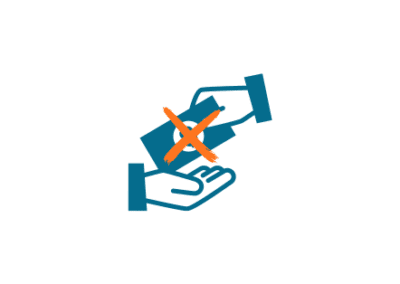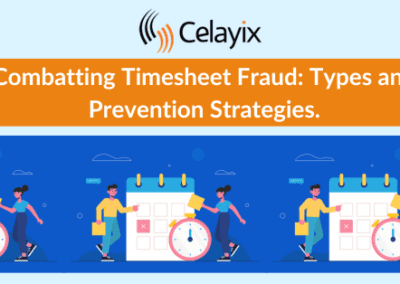
Almost every country has implemented data privacy laws to govern how information is gathered, how data subjects are notified, and what control a data subject has over his knowledge after it is transferred. Failure to comply with applicable data privacy regulations may result in penalties, lawsuits, and even prohibition of a site’s use. It might be challenging to navigate these laws and regulations, but all website administrators should be conversant with data privacy laws that influence their consumers.
Employees of various industries handle large amounts of data. This data can be from their clients, business, competitors or economic environment. As a result, data must be collected based on government regulations and data privacy laws. These laws are established to protect the fundamental human right of privacy. Therefore, in this blog, we’ll discuss the data privacy laws that are required to be followed and their impact on the workforce.
Data privacy: What is it, and why is it important?
Data privacy generally refers to a person’s ability to choose when, how, and to what extent personal information about them is shared with or conveyed to others. This personal information may include a person’s name, location, contact information, or online or offline conduct. Many online users desire to regulate or avoid some personal data collecting, just as they might want to exclude people from a private conversation.

As Internet usage has grown over time, so has the value of data privacy. To deliver services, websites, software, and social media platforms frequently need to collect and store personal data about users. On the other hand, some programs and platforms may exceed users’ expectations for data gathering and utilization. This leaves them with less privacy than they thought. Other apps and media may not correctly control the data they collect, resulting in a data breach that jeopardizes user privacy.
Many governments regard data privacy to be a fundamental human right, and data protection regulations exist to preserve that right. Data privacy is vital because individuals must trust that their data will be handled with care to engage online. Organizations use data protection practices to demonstrate to their clients and users that they can be trusted with their data.
GDPR: The law that protects employee’s data
With the lack of regulation in data privacy laws in the U.S. and Canada, organizations have taken the opportunity to ensure all parties have their data protected, be it the clients or the employees. With no federal comprehensive data privacy regulation, most organizations use GDPR as a benchmark to keep their data privacy laws compliant and updated. So, what is GDPR?

Since May 25, 2018, the General Data Protection Regulation, or GDPR, has served as the foundation for general data protection law in Austria, which the Austrian Data Protection Act has expanded. The rule specifies how personal data must be processed and safeguarded. For example, disseminating personal data to third parties, including other in-house employees, is only permissible with the employee’s consent.
Employees must understand their data protection duties, and businesses must have appropriate data protection policies and processes in place. Companies must inform their employees about GDPR and give GDPR training.
What rights do employees have under GDPR?
Employees have several rights under GDPR:
- Right to information on the collection and use of their personal information
- The right to access their personal data and any further information the data controller keeps.
- If their data is erroneous or incomplete, they can request that the data controller correct it.
- Right to request that the data controller remove their personal information.
- Directly restrict a data controller from processing their data if they believe it is illegal or erroneous.
- Right to object to processing their data for direct marketing, scientific or historical research.
- Data portability enables them to obtain and reuse data from their employer.

What are the employer obligations under GDPR?
Any employer must be open and honest about how they use and protect employees’ data inside and outside the organization. Moreover, they must hold themselves accountable for the data processing actions and demonstrate how they adhere to data privacy principles.
An employer must list all the personal information they have on file. Then, they should review it under the following sections to ensure they have the necessary consent and legal basis to treat the data. Under GDPR’s regulation, employers require a legal basis for processing employees’ data. In summary, these regulations require:
- Consent
- GDPR training and communication with employees and prospective employees
- Data Subject Access Requests (DSARs)
- Security obligations
- Record-keeping and the right to correct
- Sharing and transferring personal data
- Data protection officer
- Report breaches
- Penalties for breach

You can read more about it at https://gdpr.eu/what-is-gdpr/.
How can you stay compliant with GDPR?
Many businesses put in much effort to prepare for GDPR and saw the moment the legislation became law as the end of the project. That could not be further from the truth. Data protection and GDPR compliance necessitate ongoing efforts. Here are the significant points to consider to be GDPR compliant:
- Most importantly, every organization that controls and processes personal data must fully comprehend and appreciate that they have been entrusted with valuable assets (personal data). Understanding fundamental data subject rights is critical. The personal information that makes up your data belongs to the data subject; treat it with care.
- Following this realization, the company can (and should) design and enforce procedures to safeguard these assets throughout the organization. It is critical to understand that data security and access control are insufficient – everyone in the organization must understand their role in data protection.
- In the event of a problem, test your reporting procedure (e.g. internal breach escalation and subject access requests).
- Put in place the necessary policies and procedures and ensure that all workers and suppliers understand them.
- Teach your employees how to recognize and understand data risks.
Data privacy & workforce management
Where can employers start implementing data privacy to ensure employee safety?
The answer is Employee Schedules and Duty rosters!
It is usual practice in many firms to make the current duty roster and employee schedules available to all employees in printed form. Aside from specific duty times, they may also include absences due to illness, further training, and vacation days, as well as personal data such as the individual’s birthday or particular credentials – and this is the problem.

Generally, such personal data may be accessed only by the company and the specific employee. Suppose you wish to disclose the schedules and roster as an employer publicly. In that case, you must have the employee’s explicit authorization as indicated in the employment contract or a separate data processing agreement. Personal data such as overtime, vacation, or personal address may not be disclosed even within the organization without the authorization of the specific employee, according to the GDPR. It should be emphasized, however, that this permission does not permit other employees to copy or photograph the duty roster.
Because duty rosters can only be posted with explicit consent in rooms that are not accessible to others, digital rosters are becoming more prevalent. Employees can only see their shifts and absences and can submit requests for swaps or time off without any extra effort.
Celayix is software for intelligent employee scheduling. Celayix transmits the specific duty roster directly to the employee’s smartphone under all data protection rules. Employee requests can be made and matched automatically through the application, resulting in enhanced efficiency and flexibility in the scheduling process.




